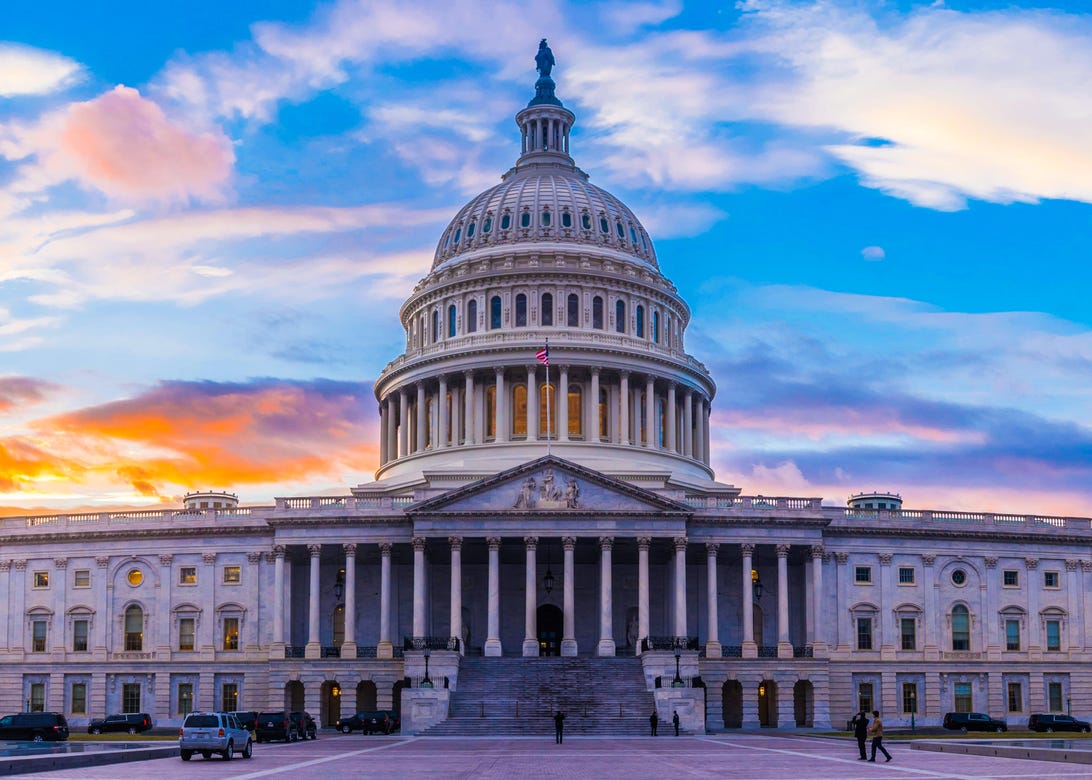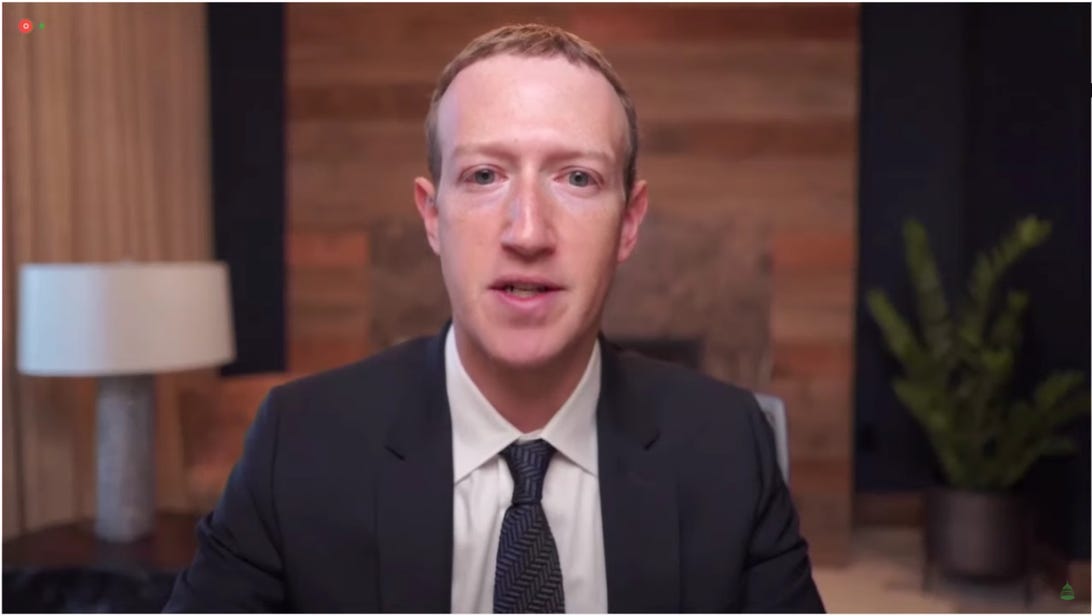
House Republicans and Democrats slammed Big Tech over child safety issues.
GettyMore than once over the course of a five-hour hearing before Congress on Thursday, Facebook CEO Mark Zuckerberg's parenting style became a point of focus for angry lawmakers. One House Republican asked if he had issues with his young daughters watching YouTube. Another asked if he lets them use Facebook's own services.
"My daughters are five and three, and they don't use our products," Zuckerberg said, before adding that he lets his older child use Facebook's chat app for kids.
The exchange typified a common refrain as the leaders of Facebook, Google and Twitter weathered a grilling from Congress -- the fourth such event in the last year where a Big Tech CEO took the hot seat -- over the misinformation that flows through their platforms. While lawmakers tried to advance their disparate agendas, one bipartisan theme emerged among Democrats and Republicans who are usually bitterly divided: the danger of Silicon Valley's services on children.
"Big tech is essentially handing our children a lit cigarette and hoping they stay addicted for life," said Rep. Bill Johnson, an Ohio Republican. Rep. Kathy Castor, a Democrat from Florida, peppered the CEOs with statistics that show a rising level of depression and suicidal thoughts among adolescents that coincides with the rise of social media.
Historically, Big Tech products have been reserved for people 13 and older. But in the past few years, companies like Google and Facebook have tried to push the bounds of those limits, creating services for younger and younger kids. (Twitter, primarily used by older users, evaded scrutiny on the issue.)
YouTube Kids, launched in 2015, is billed as a child-safe version of the massive Google-owned site. Last month, Google said it's testing new parental controls for kids 9 and up to use the full scale version of YouTube. Facebook four years ago unveiled a version of its Messenger chat app for kids to talk to their parents and friends. Now, the social network is working on a version of Instagram for kids under 13.

Facebook CEO Mark Zuckerberg said he doesn't let his young daughters use the company's products, except Messenger for Kids.
Screenshot by Sarah Tew/CNETTechnical issues like content moderation or the opaque advertising model of social networks are hard concepts to grasp, so lawmakers have glommed on to an issue that's more visceral and universal in nature: the safety of our children. It isn't a topic that the tech executives can easily swat away.
Even tech luminaries have sounded the alarm. Steve Jobs and Bill Gates talked about raising their kids with limited tech. Apple CEO Tim Cook, who has recently feuded with Facebook, has said he doesn't want his nephew on a social network.
"These hearings reflect an emboldened Congress and a tech industry that's on the defensive because the companies know that serious regulation and legislation is coming," said Jim Steyer, CEO of Common Sense Media, a child advocacy nonprofit. "No one is going to take Mark Zuckerberg seriously as a voice for parents, but the truth is our kids lives are being dramatically shaped by social media and internet platforms."
'You exploit and profit'
Silicon Valley companies have received blowback in the past when they've waded into kids products. YouTube Kids faced controversy in 2017 when the service's filters failed to recognize some videos that feature disturbing imagery but are aimed at children -- like Mickey Mouse lying in a pool of blood, or PAW Patrol characters bursting into flames after a car crash. Facebook's Messenger for Kids, meanwhile, suffered a bug in 2019 that let children join group chats with strangers.
Critics accuse Google and Facebook of skirting the Children's Online Privacy Protection Act, or COPPA, a federal law that regulates user data collection from sites with users who are under 13 years old. In 2019, the US Federal Trade Commission slapped the company with a record $170 million fine, as well as new requirements, for YouTube's violation of COPPA. In response, the video site made major changes to how it treats kids videos, including limiting the data it collects from those views.
The pushback from Congress on Thursday comes as lawmakers have drafted other legislation that deals with Silicon Valley's treatment of kids.
In September, Castor introduced the Kids Internet Design and Safety (KIDS) Act, in the House. This bill banned "auto-play" sessions on websites and apps geared for children and young teens. The legislation also banned push alerts targeting children and prohibited platforms from recommending or amplifying certain content involving sexual, violent, or other adult material, including gambling or "other dangerous, abusive, exploitative, or wholly commercial content."
Rep. Cathy McMorris Rodgers of Washington, who asked Zuckerberg if his kids use Facebook products, has introduced the Big Tech Accountability Platform, which is a road map for how Republicans are approaching regulating the tech industry. While Republicans are still concerned about the censoring of conservative voices online, they also are concerned with how the big platforms use their algorithms "to drive addiction," as well as the role the companies play "in child grooming and trafficking."
"Remember, our kids -- the users -- are the product," McMorris said Thursday. "You -- Big Tech -- are not advocates for children. You exploit and profit off them."
"danger" - Google News
March 26, 2021 at 07:00PM
https://ift.tt/39dNR4Y
Big Tech's danger to kids finally aligns Democrats, Republicans - CNET
"danger" - Google News
https://ift.tt/3bVUlF0
https://ift.tt/3f9EULr
No comments:
Post a Comment